BMW 5 Series classic cars for sale
The BMW 5 Series has defined driving dynamics in the upper mid-range class since 1972. The series stands out for its wide range of engines, from four-cylinder to V8, and offers saloon and touring body styles, crisp handling, and a distinct driver focus. Its generations brought groundbreaking features like early ABS, on-board computers and the introduction of a turbo-diesel in the E28. Every 5 Series generation delivers a mix of comfort, performance, and engineering precision that has made them sought-after modern classics.
Search results
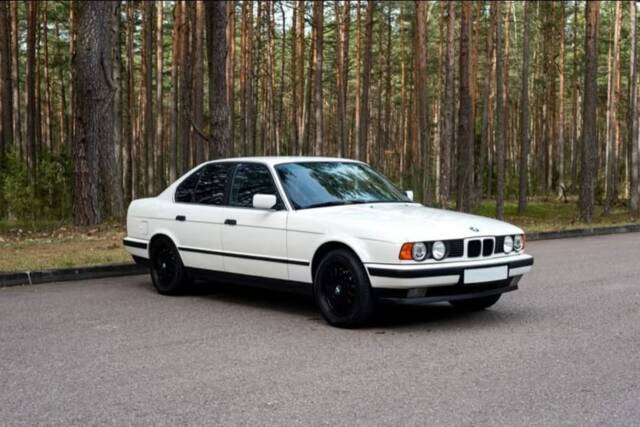
1993 | BMW 525ix
Rare BMW 525ix E34 – All-Wheel-Drive Saloon in Outstanding Original Condition
€12,000 - €15,000
Preview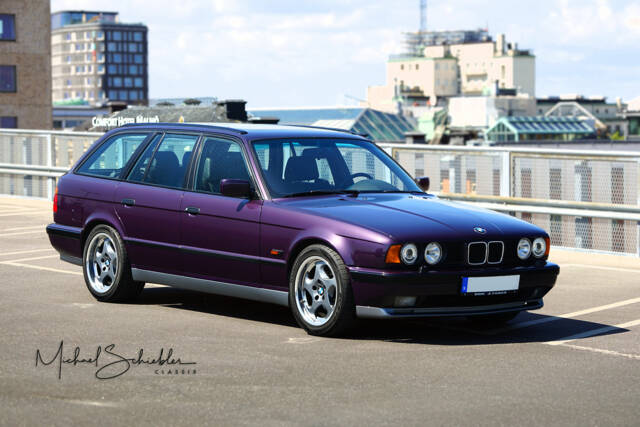
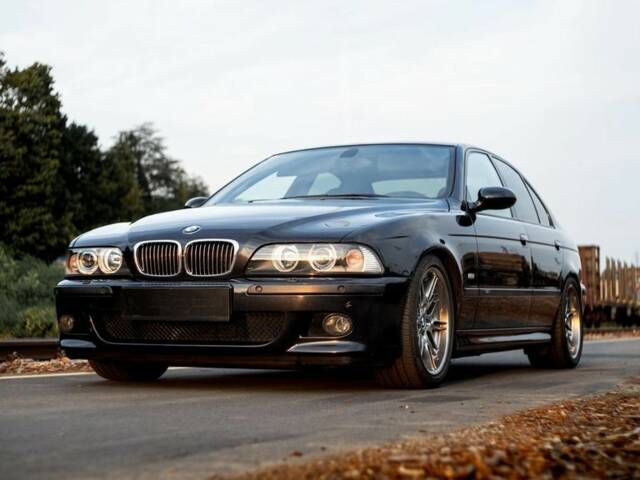
2000 | BMW M5
BMW M5 | 2000 | Route 66 Auctions - For sale by auction. Estimate 29500 EUR
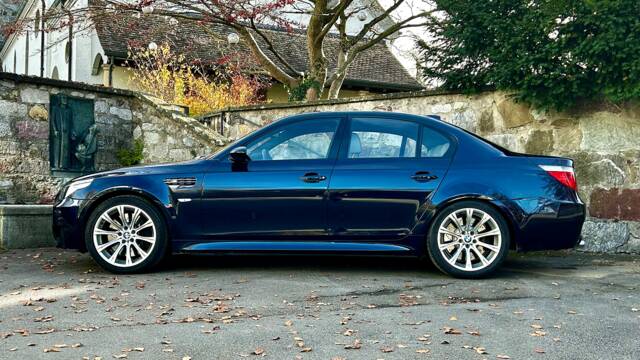
2005 | BMW M5
BMW M5 E60 (2005). Schätzpreis CHF 45'000 bis CHF 65'000
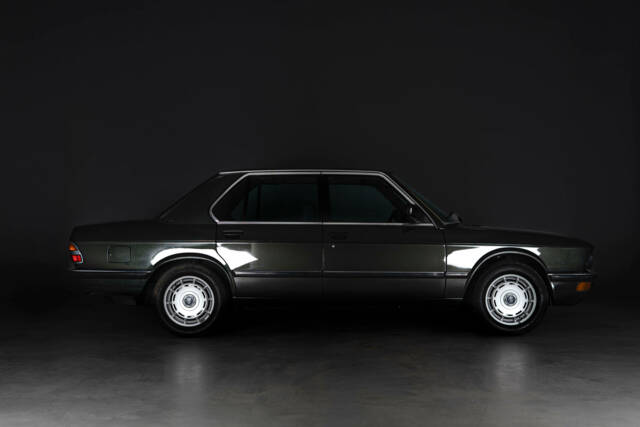
1986 | BMW 528i
BMW E28 528i 185 bhp AUTOMATIC of 1986
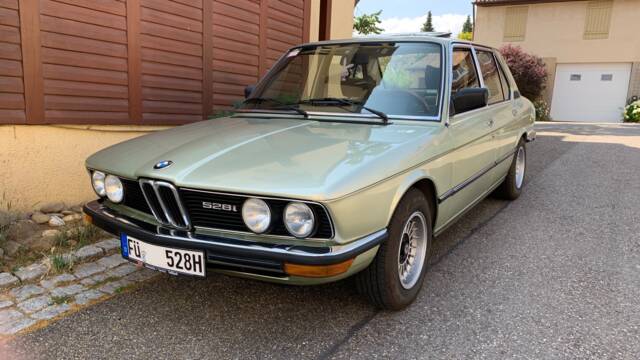
1980 | BMW 528i
BMW 528i (E12) | First registration 09/1980 | 184 hp | Original condition | Excellent care | Rare color: Reseda Green
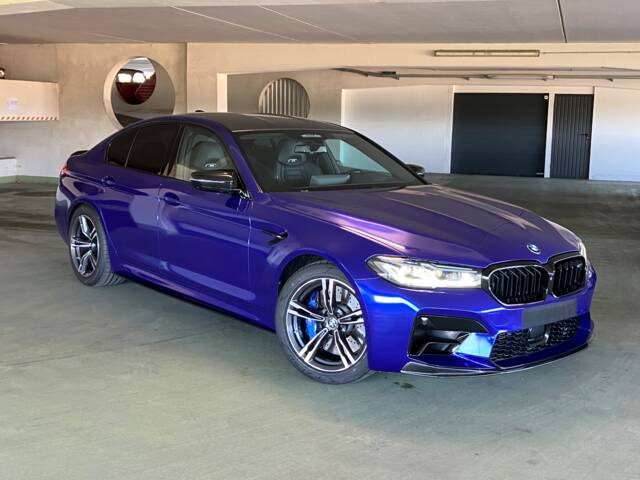
2023 | BMW M5 xDrive
*Deutsch*Unikat*Garantie*Foliert*
VAT is reclaimable
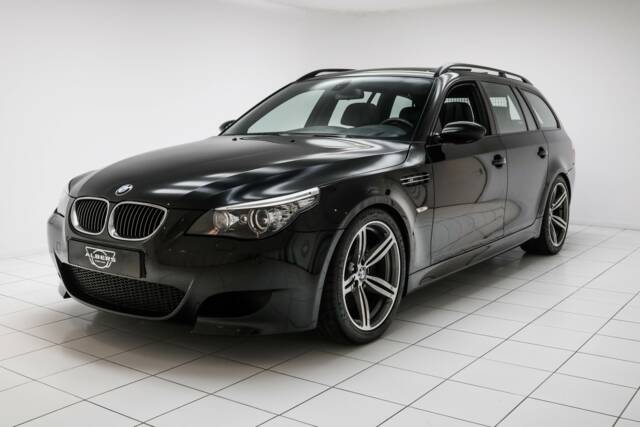
2009 | BMW M5 Touring
1 of 1025 – Full history – Pristine condition
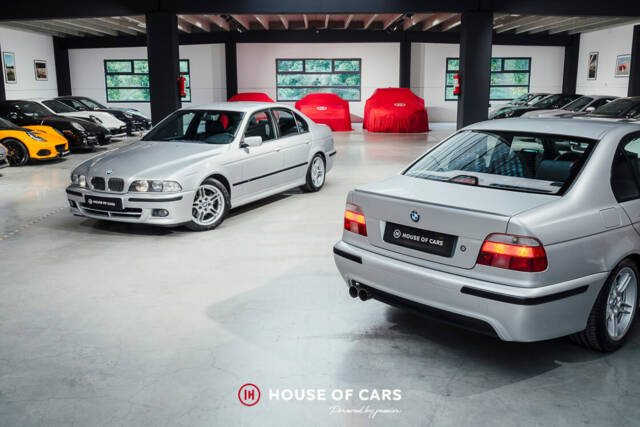
1999 | BMW 540i
BMW 5.40iA Sedan E39 M Package 1999 – Low mileage – Collector !
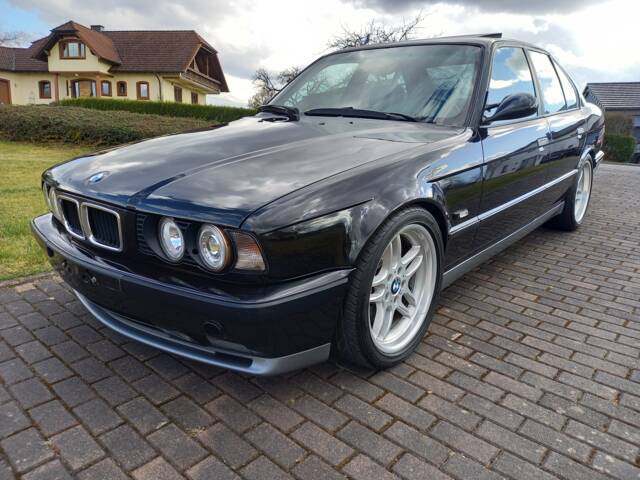
1994 | BMW M5
Original 6 Gang, Klima, ESSD, Leder, 18 Zoll, ATM 23000km
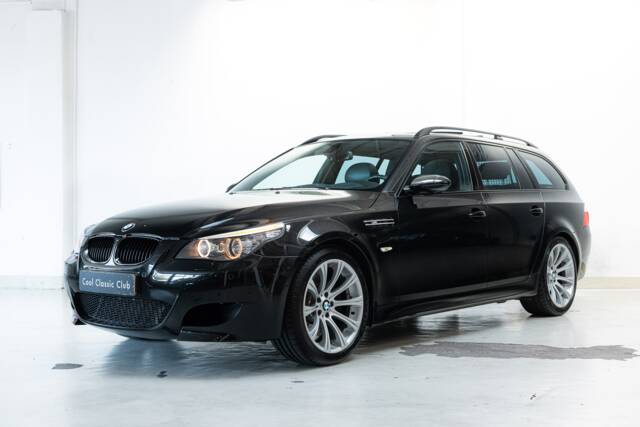
2007 | BMW M5 Touring
Extensively documented- Panorama- Upgrade's-
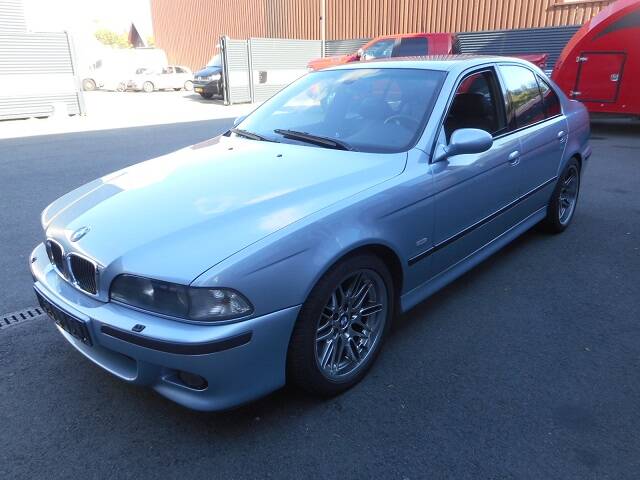
1999 | BMW M5
BMW M5 89.000 km
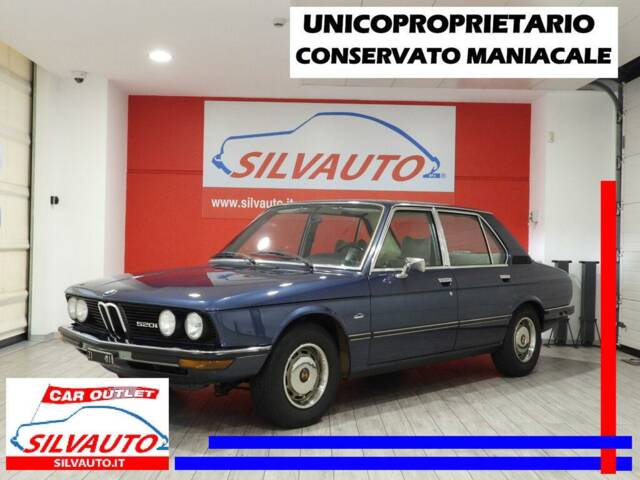
1975 | BMW 520i
BMW 520i E12 (1975) UNICOPROPRIETARIO – CONSERVATO MANIACALE – SUPERCONDIZIONI
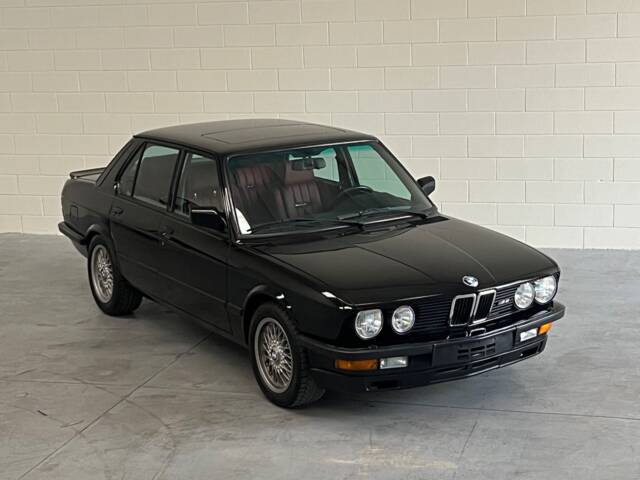
1987 | BMW M5
Provenienza USA ora Europea
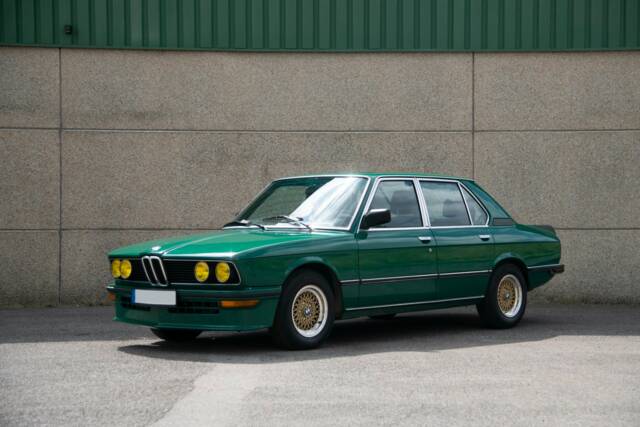
1980 | BMW M 535i
First series model from BMW M
VAT is reclaimable
BMW 5 Series Classic Cars: Prices & Market Values
The market value of BMW 5 Series classic cars is primarily determined by the specific manufacturer code and variant, as well as technical condition, originality and mileage. Additional factors include rarity, history and documentation. A well-maintained, largely original vehicle with low, verifiable mileage and complete history including appraisals and documentation typically achieves significantly higher prices than a comparable vehicle with deferred maintenance, many modifications or unclear provenance.
BMW 5 Series: Market Prices & Value Trends
Based on sales data from the Classic Trader marketplace, the BMW 5 Series segment shows a broadly stable to slightly rising market over the period from January 2021 to January 2026, with values increasingly concentrated around well-specified, collectible variants. In Europe, asking prices for regular E12/E28/E34-era cars (for example 520/6, 525, 528i and 535i from the 1970s to early 1990s) commonly sit in the mid-four figures to the low €20,000s, depending heavily on condition and history. By contrast, M-badged models underpin the top end: E34 M5s (late 1980s–mid 1990s) frequently trade around €40,000–€70,000, while E39 M5s (1999–2003) are repeatedly advertised near €50,000–€65,000, suggesting a stabilised collector baseline rather than one-off outliers. Later-performance models (E60 and newer) can extend into the €70,000–€120,000+ bracket, but these are more sensitive to specification and mileage. For buyers, this means strong demand for original, documented cars, with appreciation driven by nostalgia, limited supply of unmodified examples, and the M5’s enduring reputation as a benchmark sports saloon.
History of the BMW 5 Series
Launched in 1972 as the successor to the New Class sedans, the BMW 5 Series set new benchmarks in ride quality and technical innovation for executive cars. The very first E12 generation introduced the now-familiar BMW model numbering system, representing both series and engine displacement. With keen attention to driver engagement and chassis engineering, each subsequent 5 Series expanded on its predecessor’s qualities. The introduction of all-wheel drive in the E34, turbo-diesel engines in the E28, and advanced safety tech cemented the 5 Series as a forward-thinking choice in its class. Touring variants, introduced from the E34 onwards, added versatility without sacrificing dynamics. Over time, the 5 Series evolved to offer a broad range of comfort, safety, and sporting equipment choices, culminating in the current era of high-tech and high-performance machines.
Model history
The 5 Series family begins with the E12 (1972–1981), marking BMW’s shift to modernised production codes. Initial models featured 1.8 to 3.5-litre petrol engines, always in saloon form. The E28 (1981–1987) carried over the silhouette but modernised mechanics, adding options like the first on-board computer, ABS as an option, and the first production turbo-diesel in an executive car (524td).
The E34 (1987–1996) sharpened the format with improved aerodynamics, an independent multi-link rear suspension, and, crucially, a Touring estate model. For the first time, all-wheel drive became available (525ix), and safety features including ABS became standard. Subsequent generations—E39, E60/E61, F10/F11, and G30/G31—continued technical advancement with new engine types (V8, V10), sophisticated electronics, enhanced ergonomics, and ever-targeted M performance models. The nomenclature has followed BMW’s internal code progression: E12, E28, E34, E39, E60/E61, F10/F11, G30/G31.
Highlights and Key Statistics
The 5 Series introduced milestone features to the executive segment: the E28’s ABS, BMW’s first driver airbag, and on-board computers; the E34’s pioneering use of all-wheel drive and an independently suspended rear axle. Touring variants combined Porsche-rivalling handling with uncompromised luggage capacity.
M models upped the ante, with the M5 consistently offering the era’s highest performance in a practical package. Engine choices developed from four- and six-cylinder blocks through to V8s and even a V10 (E60 M5). Optional equipment has ranged from simple all the way to fully loaded luxury, catering to customisation demands.
In Classic Trader's supply figures, the E34 tops current listings at 28.1% share, followed by the E28 at 18.8% and the E12 at 17.4%, reflecting their enduring appeal among enthusiasts. Demand figures show an even stronger preference for the E34 (30.2%) and E28 (26.6%).
Technical data
Special Editions and Collectible Models
The 5 Series has numerous sought-after special editions. The M535i (E12) is a forerunner to the M5, presenting a maximum-power package before BMW M formalised the concept. The E28 M5 laid foundations for all future BMW super saloons and, as a hand-built six-cylinder machine, now stands out as a collector’s favourite. The E34 M5 Touring is particularly notable as one of very few high-performance BMW estates ever produced, and the E39 M5 widened appeal with V8 power and understated looks. Models with rare manual transmissions (notably the V8 540i or E60 M5), limited-run colours or BMW Individual custom options, and high-output diesels (the early 524td) are increasingly prized by enthusiasts.
Weak Spots and Common Issues
Early 5 Series models (E12, E28) are robust but require diligent rust prevention, especially around the wheel arches, underbody, and sunroof frames. Age-related wear to suspension bushings, cooling systems, and electronics can surface in all generations. E34s are generally durable—rust and electrical issues are less frequent but still relevant. Particular attention should be paid to maintenance records for performance variants and rare models, as their drivetrain and suspension parts can be expensive to source. All classic 5ers benefit from comprehensive documentation and periodic attention to ensure ongoing reliability.
Engine and Performance, Transmission and Handling
The 5 Series’ defining trait has always been its uncompromising balance between comfort and engaging handling. Early models (E12, E28) made rear-wheel drive and in-line engines central to the 5er’s road feel, while each generation improved ride, steering response, and braking through innovation—such as multi-link rear axles (E34), ABS, and advanced engine management. Manual transmissions ensure direct control, while automatics broaden daily usability.
Engines range from smooth-running four-cylinders in economy-oriented models, charismatic six-cylinder units in 520i, 525i, 535i etc., to V8 and even V10 powertrains in later M-models. M5 variants provide supercar-level acceleration and exceptional high-speed stability thanks to chassis tuning and uprated brakes. Touring and xDrive versions offer additional practicality and security. - E34 525i: Revered for its bulletproof M50 straight-six, balanced handling, and everyday usability.
- E28 M5: Recognised as the original super saloon, hand-built with the S38 straight-six from the M1.
- E34 M5 Touring: High-performance estate, combining practicality with the classic S38 engine.
- E39 540i manual: V8-powered sleeper, increasingly rare with manual transmission.
Interior, Comfort, Exterior and Design
The 5 Series is known for its relatively understated, functional styling—with clear focus on driver ergonomics and build quality. Exterior design in the E12 and E28 is recognisable by slim pillars, angular bodywork, and quad headlights. The E34 introduced softer lines and a lower drag coefficient. Interiors are driver-oriented, featuring high-grade upholstery options—from velour to leather and Alcantara—plus wood or aluminium trims, sports seats, and M-specific detailing in high-performance versions.
Many models are fitted with optional sunroofs, on-board computers, multi-speaker audio systems, and in later generations, navigation and climate control. Touring versions extend practicality, while colour choice spans classic metallics, BMW Individual tones, and rare special hues. Factory-fit alloy wheels, headlamp wash/wipe, and additional luxury features can add value and appeal.
Other notable aspects
The 5 Series was pivotal in bringing onboard computers, ABS, Xenon lighting and advanced traction systems to the mid-size premium car segment. Its strong support from BMW Classic and various owner clubs ensures continued access to technical documentation and spare parts. Original cars with full toolkits, complete maintenance history, and rare features (manual sunroofs, non-smoker status) are particularly valued among connoisseurs.
Summary
Each BMW 5 Series generation combines refined engineering, driver-focused dynamics, and practical body styles. Key variants such as the E28, E34, and E39 attract the greatest marketplace demand, particularly when equipped with rare specifications or full provenance. As a result of their balance between performance, usability, and heritage, these models have transitioned from executive transport to respected classic status.













